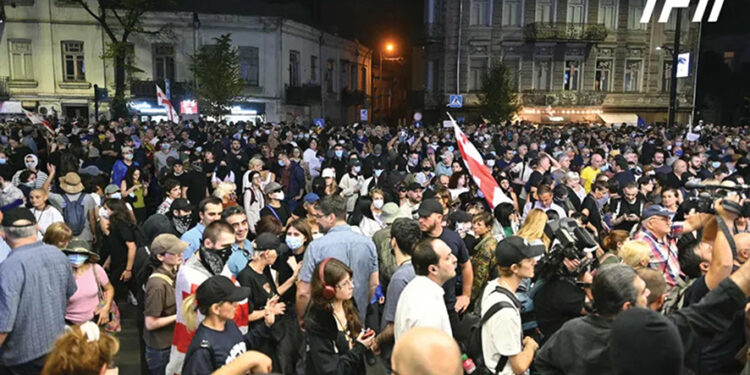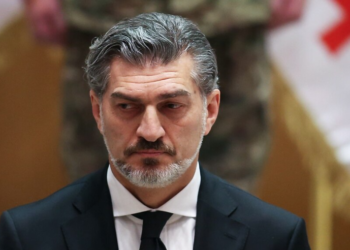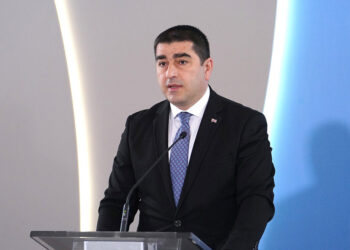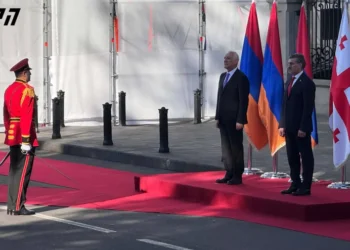On September 9, citizens gathered near the Philharmonic Hall in Tbilisi and marched toward the election headquarters of Kakha Kaladze, the Georgian Dream mayoral candidate. Upon arrival, protesters dismantled metal barriers surrounding the building while chanting slogans such as “Russians!” and “Slaves!” They demanded that Georgian Dream supporters inside the headquarters come outside. Police units were mobilized and formed a cordon around the building.
The protest followed violent clashes that had broken out the previous evening, September 8, on Melikishvili Avenue near Kaladze’s campaign office. What began as a verbal confrontation between demonstrators and members of the Georgian Dream party’s youth wing quickly escalated into physical violence. Protesters were reportedly pelted with water bottles and other objects from within Kaladze’s headquarters. Several people, including journalists, were injured and required medical attention.
According to the Georgian Young Lawyers’ Association (GYLA), the violence on September 8 was a “deliberate and coordinated attack” by Georgian Dream supporters. They reportedly arrived in several vehicles, armed with iron bars, and targeted peaceful protesters and members of the media. Video footage showed assailants approaching from both the party’s headquarters and the street. Journalists were assaulted, their equipment seized or damaged, and some, including Publika’s Laszlo Mese, required hospitalization.
GYLA stressed that the violence was not mutual, but a one-sided assault. The organization criticized police for failing to intervene and protect demonstrators. In some cases, officers were seen disarming attackers without making arrests, while obstructing journalists instead of defending them. GYLA cited this as part of a broader pattern of inaction by law enforcement, recalling similar failures following the 2024 parliamentary elections and the July 5–6, 2021 attacks.
High-ranking Georgian Dream officials, including Dimitri Samkharadze and Mayor Kaladze, appeared to justify or even endorse the violence. Kaladze also made sexist remarks targeting female protesters.
In response to public outrage, the Ministry of Internal Affairs (MIA) issued a statement on September 9 announcing that it had launched an investigation under Article 126¹ of the Criminal Code, which concerns group violence. The MIA described the incident as a “confrontation between citizens” and stated that law enforcement had taken “necessary measures” to prevent further escalation.
GYLA rejected this characterization, insisting the events of September 8 were not a spontaneous clash but a deliberate attempt to suppress dissent through intimidation and organized violence. “The September 8 events once again confirmed that Georgian Dream continues to grossly violate human rights against peaceful protest,” the organization concluded.
By Team GT














